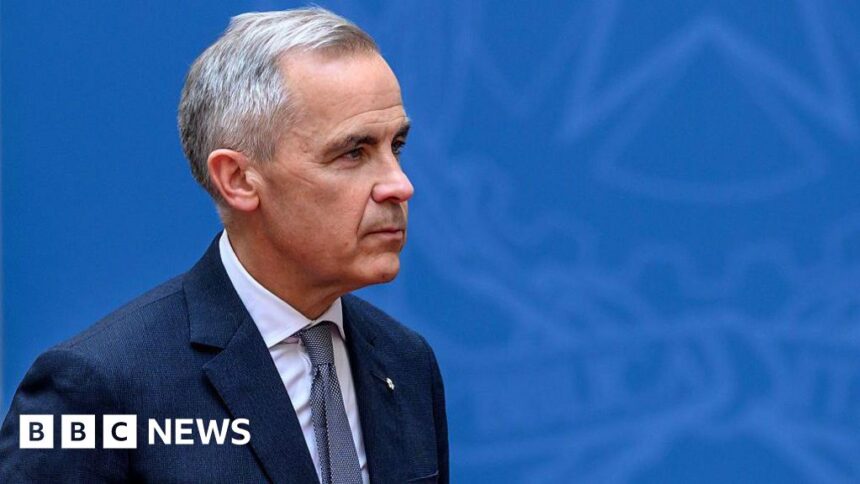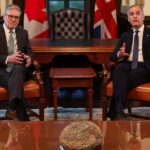I’ve just landed in Muskoka, Ontario, where the rustic Canadian landscape will soon host the world’s most consequential economic summit. As foreign finance ministers and central bankers converge on this lakeside retreat, I’m struck by the contrast between the serene surroundings and the turbulent global economy they’ll be discussing.
“We’re facing a perfect storm of challenges,” confided a senior Canadian finance official who requested anonymity. “From Ukraine to Gaza, from inflation to AI disruption—this G7 comes at a pivotal moment.”
This year’s summit carries particular weight as former Bank of England governor Mark Carney takes center stage. The Canadian-born economist, who also led the Bank of Canada through the 2008 financial crisis, brings unique credibility at a time when the global economic order faces unprecedented strains.
Through conversations with diplomats, finance officials, and economic analysts in both Washington and Brussels over the past month, I’ve identified five critical issues that will dominate this year’s G7 agenda.
Ukraine’s financial lifeline tops the list. With the war entering its third year and U.S. military aid repeatedly stalled by congressional wrangling, European officials are privately expressing concern about sustaining Ukraine’s economic viability. According to World Bank data, Ukraine’s GDP contracted by 29.1% in 2022, and despite modest recovery, the country faces a $3-5 billion monthly financing gap.
“The question isn’t just about military support,” said Olena Bilan, chief economist at Dragon Capital in Kyiv, whom I spoke with via video call. “It’s about preventing economic collapse while fighting continues. Without coordinated G7 support, Ukraine’s financial system could unravel by winter.”
The International Monetary Fund has approved a $15.6 billion package, but G7 finance ministers must now address the thornier question of Russian asset seizures. Approximately $300 billion in Russian central bank reserves remain frozen in Western financial institutions. The legal mechanisms for converting these assets into direct aid for Ukraine remain contentious.
A second pressing concern involves the fragmentation of global trade. Recent data from the WTO shows global trade growth slowing to just 0.8% in 2023, with projections remaining below 3% through 2025. This tepid performance reflects deeper structural shifts as nations prioritize economic security over efficiency.
“We’re witnessing the death of the post-Cold War economic consensus,” explained Martin Sandbu, economics commentator at the Financial Times, during our conversation in Brussels last week. “The question facing Carney and the G7 is whether they can establish new rules that balance security concerns with the benefits of open markets.”
China’s economic relationship with the West has grown particularly fraught. President Biden’s maintenance of Trump-era tariffs, combined with new export controls on advanced technologies, has accelerated what some economists call “slowbalization.” The European Union has followed with its own investigation into Chinese electric vehicle subsidies, threatening additional tariffs.
Walking through the World Bank’s headquarters in Washington before my flight to Canada, I encountered a sense of quiet crisis regarding debt sustainability in developing nations. The third major G7 challenge involves preventing a cascade of sovereign defaults across Africa and parts of Asia.
“Nearly 60% of low-income countries are in debt distress or at high risk of it,” noted Indermit Gill, the World Bank’s chief economist, during our meeting. “The Common Framework for debt treatment has moved too slowly. The G7 must revitalize this process or we’ll see economic collapses that could trigger regional instabilities.”
Zambia’s debt restructuring offers a case study in the challenges. Despite entering the Common Framework process in 2020, final agreements with creditors remain elusive. Similar delays plague Ghana and Ethiopia, creating what Gill described as “development paralysis” across affected regions.
The fourth issue confronting Carney involves climate finance—his specialty as UN Special Envoy for Climate Action and Finance. The gap between pledged climate funding and delivered resources continues to widen. The promised $100 billion annual support from developed to developing nations has consistently fallen short, with the OECD reporting actual flows of just $83.3 billion in 2020.
“The credibility of the entire climate finance architecture is at stake,” warned Avinash Persaud, special envoy to Barbados Prime Minister Mia Mottley, who has championed the Bridgetown Initiative for climate resilience financing. “If the G7 doesn’t deliver concrete mechanisms to mobilize private capital alongside public funds, we’ll lose another critical year while climate impacts accelerate.”
Standing near the Muskoka conference center yesterday evening, I watched technicians testing security systems while local protesters gathered with signs demanding more aggressive climate action. The juxtaposition highlighted the final major challenge facing Carney and the G7: rebuilding public trust in global economic institutions.
Opinion polls across G7 nations show alarming declines in confidence regarding economic leadership. A recent Pew Research survey found that only 34% of respondents across G7 countries believe international economic organizations are working for their benefit, down from 52% a decade ago.
“People feel the system is rigged,” explained Mariana Mazzucato, professor at University College London, who advises several G7 governments on economic policy. “The G7 needs to demonstrate that coordinated economic governance can deliver tangible benefits—jobs, stability, and shared prosperity—not just crisis management.”
As finance ministers begin arriving today, the technical preparations give way to high-stakes political negotiations. Mark Carney’s challenge transcends individual policy fixes—he must craft a coherent narrative about how global economic cooperation can navigate a world increasingly defined by competition, conflict, and climate crisis.
Standing by the lake as the Canadian sunset reflected off the water, I was reminded of another G7 summit I covered in 2008, when the global financial system teetered on collapse. The challenges today may be more diffuse but no less consequential. The decisions made here in Muskoka will reverberate through economies, communities, and households worldwide.






